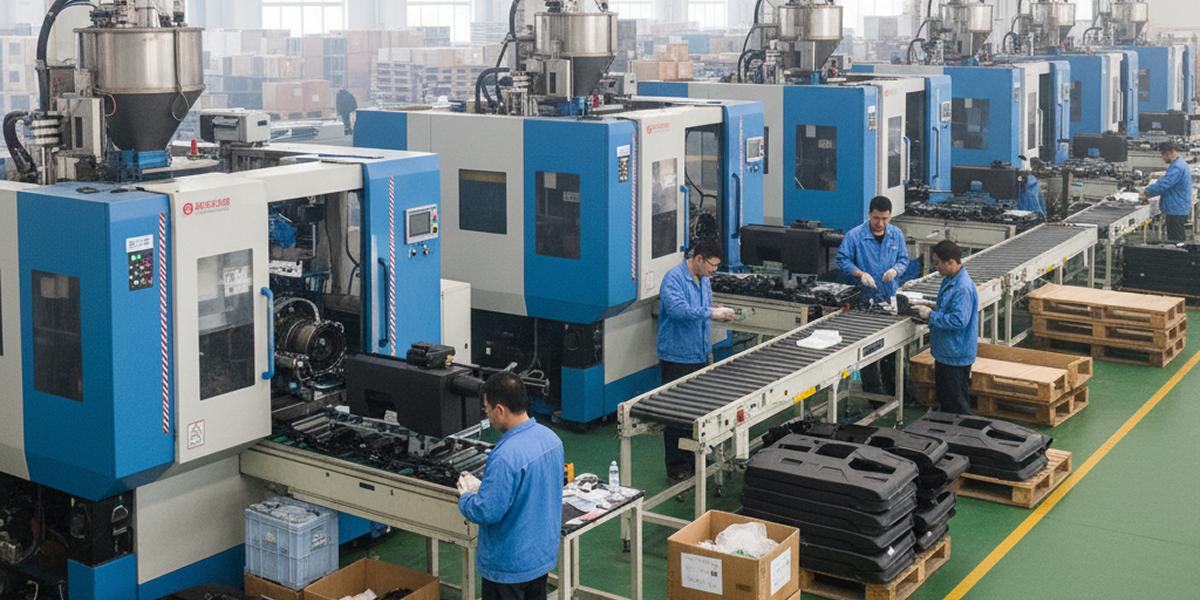Thin Wall Injection Molding in China for Automotive Parts

The automotive industry is always searching for ways to reduce vehicle weight without sacrificing safety. They've figured out that producing lightweight parts directly helps improve fuel efficiency and reduce emissions. This is where injection molding in China enters the picture, as they can meet such demand by producing thinner, and lighter components. That's why nowadays, this method is used for many interior and exterior vehicle parts.
Now, let's examine the role of thin wall injection molding. Here, we'll get to know the specific benefits of partnering up with Chinese manufacturers for this specialized work.
Thin Wall Molding in the Automotive Sector
Producing thin walled plastic parts is what thin wall injection molding for automotive is all about. While a traditional part might have a wall thickness of two to three millimeters, thin wall parts can be one millimeter or less. This reduction in material drastically lowers the weight of the final component. This specialized molding process is an important technology for modern car manufacturing.
The Need for Lightweight Parts
Lighter vehicle parts lead to several significant benefits for both manufacturers and drivers. Less weight means the car's engine does not have to work as hard. This directly translates to better gas mileage for gasoline-powered cars. It also provides a longer range for electric vehicles. It also improves vehicle handling and overall performance. Automakers rely on thin wall molding to achieve these weight reduction goals across the entire vehicle.
Common Automotive Applications
Thin wall molding is used for a variety of automotive components. Inside the car, it is used for parts like dashboard components and door panels. It is also used for HVAC (Heating, Ventilation, and Air Conditioning) louvers and other interior trim pieces. These components need to be light. They also must be precisely manufactured to fit together perfectly. Outside the car, it is used for sensor housings, electrical connectors, and even certain lighting components.
Why Partner with Chinese Manufacturers for Automotive Parts?
High Volume and Scale
The automotive industry requires millions of identical parts with extremely high consistency. Manufacturing facilities in China are built to handle these massive production volumes efficiently. They use a large number of modern injection molding machines that operate continuously. This scale of operation allows for optimized production schedules and uninterrupted supply chains.
Investment in Advanced Equipment
Producing thin wall parts requires specialized machinery. This machinery must inject molten plastic at extremely high speeds and pressures. Leading Chinese molders have invested heavily in high-speed, precision molding presses. They use advanced mold designs with conformal cooling channels. This specialized setup minimizes warpage. It also achieves extremely fast cycle times. Faster cycles lead to lower costs for the buyer.
Expertise in Mold Tooling
The mold itself is the heart of the thin wall injection process. Chinese tooling engineers are highly skilled in designing and building durable, multi-cavity molds. They select special high-hardness steels for the molds. This helps them withstand the intense pressures of the process. They also use advanced simulation software. This technology helps predict and solve flow issues before the mold is even constructed.
How Chinese Partnerships Improve Thin Wall Production Quality
Focus on Material Science
The correct plastic resin selection is mandatory for parts that must survive the harsh automotive environment. Parts must withstand heat, vibration, and different chemical exposures. Manufacturers in China work with specialized, high-flow engineering resins like certain grades of nylon (PA), Polycarbonate/ABS (PC/ABS), and Polypropylene (PP). They choose materials that provide the necessary strength and thermal stability at very thin dimensions.
Strict Quality Assurance Protocols
Automotive parts require zero defects because they impact vehicle safety and function. Chinese suppliers implement comprehensive quality assurance protocols. They use automated Coordinate Measuring Machines (CMM) and vision systems for precise part inspection. Many facilities follow international standards like ISO/TS 16949 for their management systems. This practice helps clients feel confident in the quality of the components being made.
Optimized Design and Engineering Support
Many Chinese molders offer complete engineering support from the design phase onward. They collaborate with their clients to optimize the part geometry for thin wall molding. This includes advising on the placement of ribs and gussets to maintain strength while minimizing wall thickness. They focus on minimizing sharp corners to improve material flow and achieve smooth part ejection. This partnership reduces development time and technical risks for the client.
Key Takeaway
Reducing vehicle weight is a continuing priority for the modern automotive industry. This goal depends of course on the efficient production of lightweight components. The specialized process of thin wall molding provides an excellent solution. This is why nowadays, injection molding in China is considered a top option for automotive companies.
Not only do they offer unmatched capacity, they also have advanced technology, and high-level tooling expertise. Partnering with these expert manufacturers provides a distinct advantage in the global market.
- AI
- Vitamins
- Health
- Admin/office jobs
- News
- Art
- Causes
- Crafts
- Dance
- Drinks
- Film
- Fitness
- Food
- Jogos
- Gardening
- Health
- Início
- Literature
- Music
- Networking
- Outro
- Party
- Religion
- Shopping
- Sports
- Theater
- Wellness


